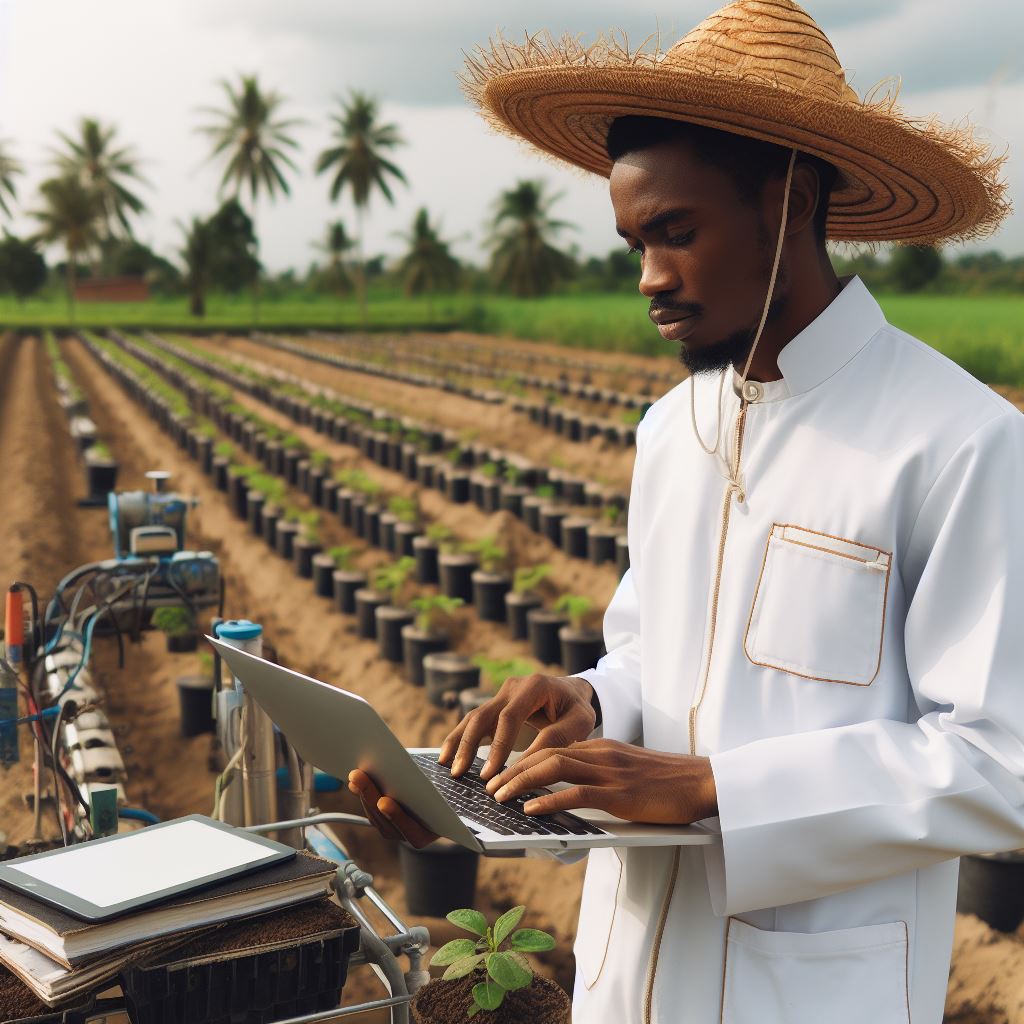Introduction
Brief overview of wildlife trafficking and poaching
How Nigeria Combats Wildlife Trafficking and Poaching: Wildlife trafficking and poaching involve the illegal trade of animal species and their products, driven by the demand for exotic pets, traditional medicines, and luxury goods.
Importance of combating wildlife trafficking and poaching
Combating wildlife trafficking and poaching is crucial for biodiversity conservation, ecological balance, and sustainable development, along with protecting endangered species from extinction.
Thesis statement – Nigeria’s efforts to combat wildlife trafficking and poaching
Nigeria has taken significant steps to address wildlife trafficking and poaching, implementing various strategies and legislation to protect its rich biodiversity
Read: Career Prospects for Crop Science Graduates in Nigeria
Legal framework and enforcement
Overview of laws and regulations related to wildlife trafficking and poaching in Nigeria
- Nigeria has several laws and regulations in place to combat wildlife trafficking and poaching.
- The Endangered Species (Control of International Trade and Traffic) Act prohibits the trade of endangered species.
- The National Parks Service Act establishes protected areas and regulates activities within them.
Role of law enforcement agencies and their efforts in combating illegal wildlife trade
- Nigeria’s law enforcement agencies, such as the Nigerian Customs Service, Nigerian Police Force, and the National Drug Law Enforcement Agency, play a crucial role in combating wildlife trafficking.
- These agencies work together to investigate and apprehend individuals involved in illegal wildlife trade.
- They conduct operations to intercept and seize illegal wildlife products at entry and exit points.
Challenges faced in enforcing the laws and proposed solutions
- One major challenge is the lack of capacity and resources within law enforcement agencies.
- There is a need for specialized training programs to enhance the skills of officers dealing with wildlife trafficking.
- Moreover, corruption and lack of coordination between different agencies hinder effective enforcement.
- Proposed solutions include increasing funding for law enforcement agencies and strengthening international collaborations.
Examples of successful prosecutions and convictions of wildlife traffickers
- In 2017, the Nigerian Customs Service arrested two individuals with ivory products, leading to their conviction.
- In 2019, the National Park Service arrested a notorious wildlife trafficker and successfully prosecuted him.
- These examples demonstrate the commitment of Nigerian authorities in tackling wildlife trafficking.
International Collaborations and Partnerships
Membership in International Organizations
Nigeria actively fights wildlife trafficking through memberships in global organizations. These alliances enhance the nation’s capacity.
Institutions like INTERPOL and CITES welcome Nigeria’s commitment. Collaboration with these bodies ensures streamlined efforts against poaching.
Nigeria’s Involvement in Regional Initiatives
Within Africa, Nigeria plays a pivotal role in regional initiatives combating wildlife trafficking. Engagements in regional conventions amplify collective strength.
Participation in initiatives like the African Elephant Coalition exemplifies Nigeria’s dedication to safeguarding endangered species. Regional unity reinforces protection measures.
Cooperation with Foreign Governments and Agencies
Beyond continental alliances, Nigeria engages with foreign governments and enforcement agencies. Diplomatic ties facilitate the exchange of crucial information.
Partnerships with the United States Fish and Wildlife Service exemplify bilateral efforts. Shared intelligence strengthens interception and prosecution strategies.
Examples of Successful Joint Operations
Success stories underline Nigeria’s effectiveness in collaborative operations. Operations like “Operation Eagle Eye” showcase joint endeavors yielding tangible results.
Collaborations with countries like China resulted in significant seizures of illicit wildlife products. These operations underscore the impact of global unity.
In fact, Nigeria’s fight against wildlife trafficking extends beyond borders.
Membership in international organizations, participation in regional initiatives, and collaborations with foreign entities showcase a united front.
The success of joint operations highlights the effectiveness of these global partnerships. The world must continue to stand together to preserve our planet’s precious biodiversity.
Read: Evolution of Crop Science Education in Nigeria: A Retrospect

Learn More: Government Policies on Wildlife Management in Nigeria
Public awareness and education
Importance of raising awareness among the public about the impacts of wildlife trafficking and poaching
Raising public awareness is crucial in combating wildlife trafficking and poaching.
The public needs to understand the negative consequences these activities have on biodiversity, ecosystems, economies, and communities.
By creating awareness, people can be motivated to take action, support conservation efforts, and report any illegal wildlife trade activities they come across.
Government-led campaigns and programs to educate the public
The Nigerian government plays a significant role in educating the public about wildlife trafficking and poaching. They spearhead campaigns and programs aiming to inform and sensitize the population.
These initiatives include social media campaigns, public service announcements on television and radio, and educational workshops in schools and communities.
Through these efforts, the government aims to reach a wide range of people, from young students to adults, and empower them to become advocates for wildlife protection.
Involvement of Non-Governmental Organizations (NGOs) and community-based initiatives
In addition to government-led initiatives, Non-Governmental Organizations (NGOs) and community-based initiatives play a crucial role in educating the public about wildlife trafficking and poaching.
NGOs such as the Wildlife Conservation Society of Nigeria and the Nigerian Conservation Foundation work tirelessly to raise awareness through various activities.
They conduct public awareness campaigns, organize community dialogues, and collaborate with local communities to develop sustainable solutions that address the root causes of wildlife trafficking.
Success stories of community-driven efforts in combating wildlife trafficking
One notable success story of community-driven efforts in combating wildlife trafficking is the Cross River National Park in Nigeria.
Local communities, in collaboration with conservation organizations, have worked together to protect the park’s biodiversity and combat wildlife trafficking.
Through community surveillance systems, trained community members monitor and report suspicious activities, ensuring immediate action is taken against poachers and traffickers.
These efforts have led to a significant decrease in illegal wildlife trade in the area and have fostered a sense of ownership and pride among community members.
In short, public awareness and education are fundamental in the fight against wildlife trafficking and poaching in Nigeria.
Government-led campaigns and initiatives, combined with the involvement of NGOs and community-based initiatives, have shown positive results in raising awareness and mobilizing communities to protect their wildlife.
By continuing to prioritize public education, Nigeria can create a society that values and protects its rich biodiversity, ensuring a sustainable future for both wildlife and communities.
Read: Comparing Crop Science with Agronomy in Nigerian Varsities
Find Out More: Community Involvement in Wildlife Management in Nigeria
Wildlife conservation and protection
Conservation initiatives to protect endangered species and their habitats
Nigeria has implemented various conservation initiatives to safeguard endangered species and their natural habitats.
These initiatives include establishing protected areas, promoting sustainable practices, and educating communities on conservation.
Conservation strategies involve collaborating with local communities and stakeholders to mitigate habitat destruction and address human-wildlife conflicts.
Nigeria’s government is actively engaged in efforts to identify and protect critical habitats, especially for endangered species like elephants, pangolins, and primates.
Partnerships with international organizations and NGOs have resulted in increased funding for conservation projects in Nigeria.
Transform Your Career with Expert Guidance
Get personalized mentorship consulting that’s tailored to your unique path. Our expert advice is actionable and exclusive.
Get StartedRole of national parks, reserves, and protected areas in preventing wildlife trafficking
Nigeria’s national parks, reserves, and protected areas play a crucial role in combating wildlife trafficking.
These designated areas provide safe havens for endangered species, making it harder for poachers and traffickers to access them.
Rangers and park management receive specialized training to monitor and protect wildlife populations effectively.
Regular patrols, surveillance systems, and intelligence gathering help in detecting and intercepting illegal wildlife trade activities.
Collaboration between law enforcement agencies and conservation organizations enhances the effectiveness of anti-trafficking operations.
Efforts to strengthen border control and crack down on illegal trade routes
Nigeria has recognized the critical role of border control in addressing wildlife trafficking.
The government has invested in training customs and border officials to detect and seize illegal wildlife products.
Enhanced cross-border cooperation with neighboring countries facilitates information sharing and joint enforcement operations.
Advanced technologies such as scanners and sniffer dogs are utilized to identify hidden wildlife products at border checkpoints.
Legislation has been strengthened to impose stricter penalties on individuals involved in wildlife trafficking activities.
Conservation technology and its contribution to combating poaching
Nigeria embraces the use of conservation technology to combat poaching and wildlife trafficking.
Advanced monitoring systems, such as GPS tracking and camera traps, aid in tracking and deterring poachers.
Drone surveillance has been employed to monitor remote areas, gathering critical data for anti-poaching efforts.
Efforts are underway to develop DNA fingerprinting techniques to identify the origin of confiscated wildlife products.
Additionally, public awareness campaigns leverage technology and social media platforms to educate and engage the public in conservation efforts.
By implementing these strategies and leveraging technology, Nigeria is actively working towards combatting wildlife trafficking and poaching.
It is crucial to continue supporting and expanding these initiatives to protect Nigeria’s rich biodiversity for future generations.
Read: Fieldwork Insight: Real Stories of Crop Defense in Nigeria
Conclusion
Nigeria has made significant strides in combating wildlife trafficking and poaching.
Through the establishment of dedicated law enforcement units and increased collaboration with international partners, Nigeria has successfully disrupted criminal networks involved in wildlife trafficking.
Efforts such as strengthening legislation, enhancing surveillance and monitoring systems, and raising public awareness have also contributed to the fight against poaching.
However, the battle is far from over, and continued efforts are crucial in order to protect Nigeria’s rich biodiversity.
It is important to address the ongoing challenges posed by corruption, inadequate funding, and the ever-evolving tactics of wildlife criminals.
Nigeria must also focus on promoting sustainable livelihoods for communities living near wildlife habitats, as poverty and lack of alternative income sources often drive people towards engaging in illegal activities.
Therefore, a strong call to action is needed for individuals, organizations, and government stakeholders to actively support wildlife conservation and protection efforts in Nigeria.
Individuals can contribute by reporting any suspicious activities to relevant authorities and by promoting responsible tourism practices.
Organizations should collaborate with local communities and provide support for livelihood diversification programs.
The government should prioritize the allocation of adequate resources and funding to conservation initiatives, as well as strengthen law enforcement capacities.
By working together, we can ensure the survival of Nigeria’s unique and diverse wildlife for future generations.




